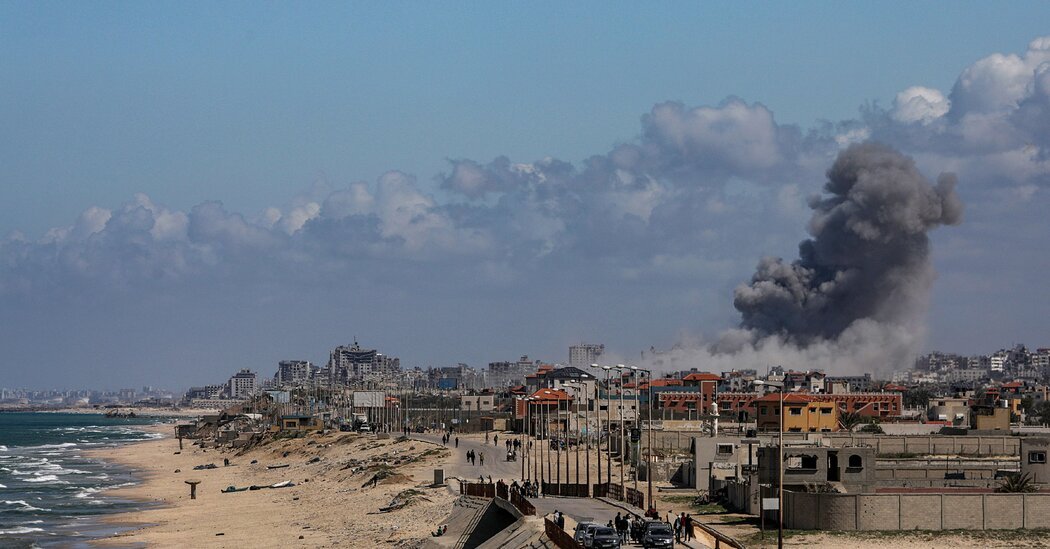In the heart of Gaza, al-Shifa Hospital has become an emblem not just of healing but of the profound complexities and tragedies that mark the Israeli-Palestinian conflict. The recent week-long raid by Israel into this medical facility marks a significant chapter in the ongoing six-month war, underscoring both the tactical dimensions of military operations and the broader humanitarian concerns that resonate globally.
The operation, described as one of the largest and most successful by Israeli forces, resulted in over 800 men being detained. Among these individuals, Israel’s Defense Forces (IDF) claim 480 are affiliated with Hamas and Islamic Jihad—two groups designated as terrorist organizations by several countries, including Israel. This action reflects Israel’s strategy to dismantle what it perceives as militant infrastructure within civilian spaces. However, such approaches raise critical questions about international law, human rights, and the ethical implications of warfare tactics.
Notably, IDF asserts that their operations at al-Shifa Hospital were conducted with precision aimed at minimizing civilian casualties—a claim that warrants scrutiny given the complex nature of conducting military operations within densely populated civilian areas. The reported death toll stands at least 170 people killed during this period; a figure that starkly reminds us of the human cost associated with such conflicts.
Parallel to these developments on the ground is a diplomatic narrative unfolding across international forums. A delegation comprising top Israeli defense officials was poised to discuss further offensive measures into Rafah with Washington—an initiative met with criticism from within President Biden’s administration. These discussions underscored a delicate balance between strategic partnerships and adherence to principles advocating for peace and stability in regions marred by conflict.
Complicating matters further is a UN Security Council ceasefire resolution passed despite previous U.S opposition—an indication of shifting dynamics within international diplomacy concerning this conflict. Both Hamas and Israel have expressed opposition to this ceasefire agreement which raises doubts about its efficacy in halting hostilities or paving a path towards lasting peace.
As observers situated at various points around this geopolitical chessboard seek understanding and solutions, it becomes imperative to navigate through narratives laden with political agendas toward an assessment rooted in empathy for all affected populations alongside rigorous analysis.
This situation calls for renewed emphasis on dialogue facilitated not only through diplomatic channels but also incorporating perspectives from civil society actors who bear witness to these events’ immediate impacts. Moreover, there exists an urgent need for innovative strategies that transcend traditional paradigms—approaches capable of addressing underlying issues fueling cycles of violence while fostering conditions conducive to reconciliation and rebuilding.
In conclusion, while military operations like those witnessed at Gaza’s al-Shifa Hospital may be framed within contexts emphasizing tactical gains or losses, they invariably interconnect with broader considerations encompassing human rights norms compliance; implications for regional stability; prospects for achieving durable peace; among others.

Leave a Reply